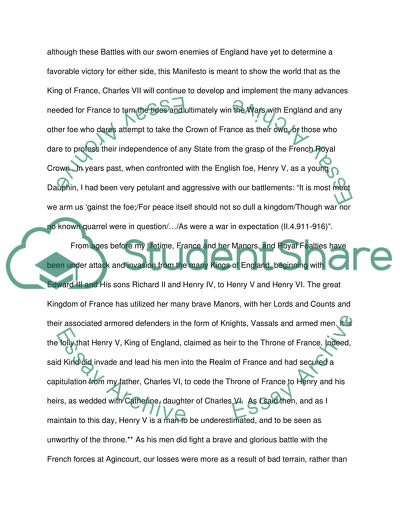Cite this document
(A Manifesto on War from Charles VII, Dauphin and Rightful King of Research Paper, n.d.)
A Manifesto on War from Charles VII, Dauphin and Rightful King of Research Paper. Retrieved from https://studentshare.org/history/1402565-henry-v-manifesto
A Manifesto on War from Charles VII, Dauphin and Rightful King of Research Paper. Retrieved from https://studentshare.org/history/1402565-henry-v-manifesto
(A Manifesto on War from Charles VII, Dauphin and Rightful King of Research Paper)
A Manifesto on War from Charles VII, Dauphin and Rightful King of Research Paper. https://studentshare.org/history/1402565-henry-v-manifesto.
A Manifesto on War from Charles VII, Dauphin and Rightful King of Research Paper. https://studentshare.org/history/1402565-henry-v-manifesto.
“A Manifesto on War from Charles VII, Dauphin and Rightful King of Research Paper”, n.d. https://studentshare.org/history/1402565-henry-v-manifesto.


